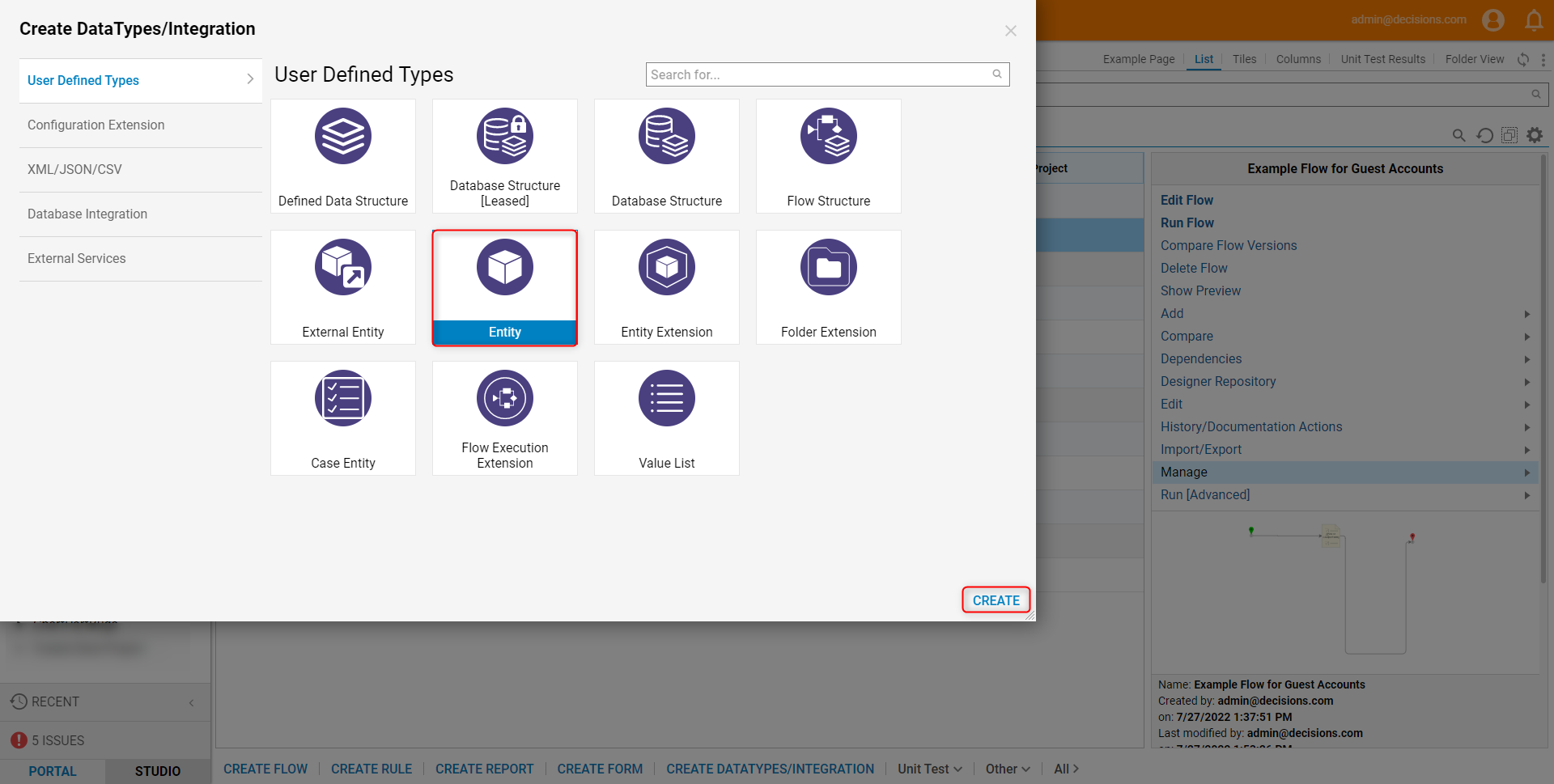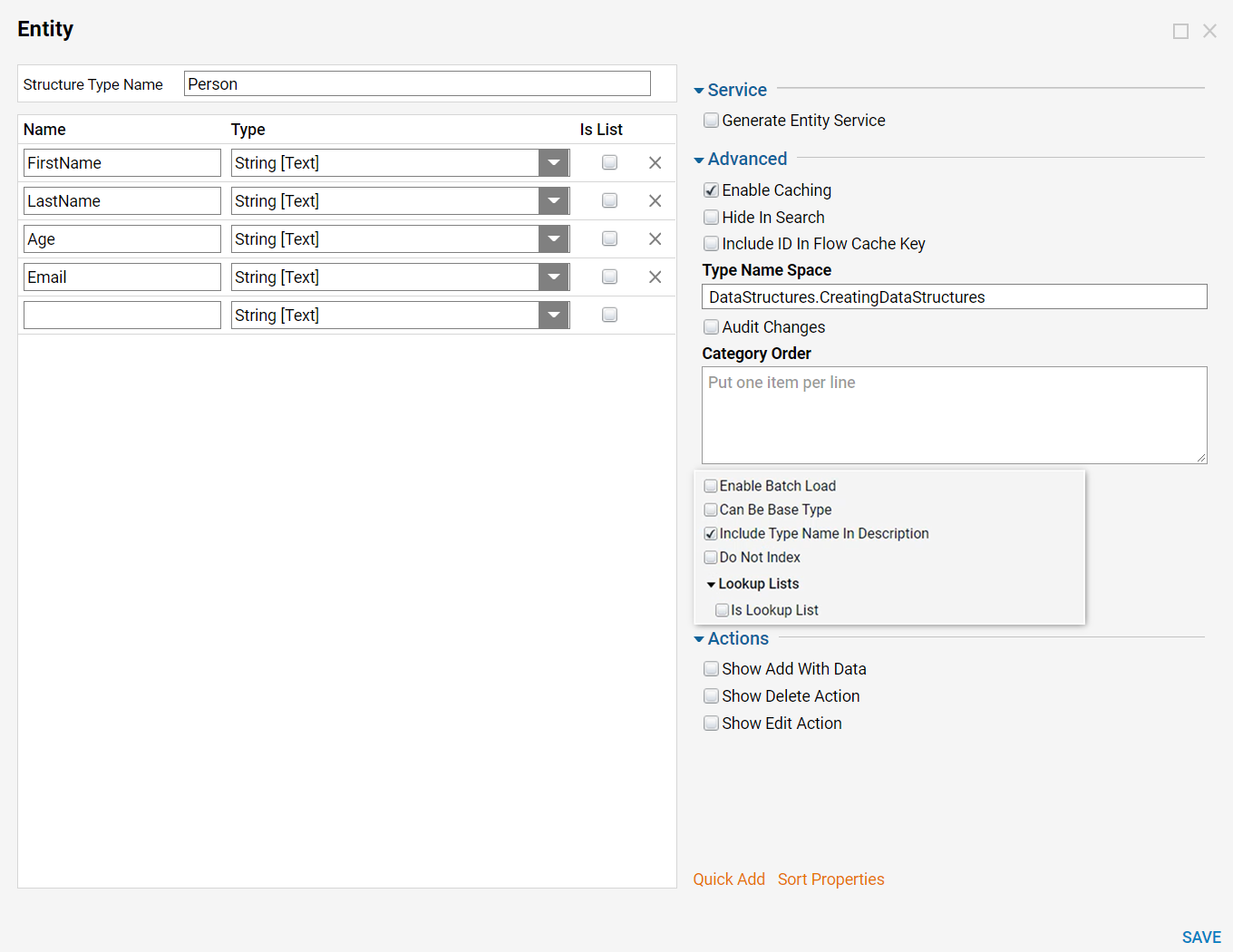Overview
Entities are Defined Data Structures that can be added to a Folder via the Add > [MyEntity] action. After an Entity is created there are different settings that can be managed including actions, Permissions, and extensions. A Configuration Folder is also created with the Entity, which is used to configure group actions, user actions, Visibility Rules, process state triggers, and more.
Example
- In a Designer Folder, select the CREATE DATATYPES/INTEGRATIONS button from the bottom Action Bar.
- In the Create DataTypes/Integration window, choose the Entity icon from the User Defined Types section.
- Select CREATE.

- Name the Entity Data Structure [Person].
- Name and select the type of data fields.
In this example, the data fields are FirstName (String), LastName (String), Age (String), Email (String).
- Select SAVE.

Entity Data Structure Settings
Service
| Setting Name | Function |
| Generate Entity Service | Allows for the integration of the Entity as a service |
Advanced
| Setting Name | Function |
| Enables the Entity to be loaded into the cache |
| Hide In Search | This hides the data type from appearing when it is searched |
| Include ID In Flow Cache Key | Adds the GUID to the Cache Step Key for easier searching |
| Type Name Space | Creates the unique identifier for the Entity (namespace.typename) and is used to generate the SQL table name for the Entity (namespace_typename) |
| Audit Changes | This saves changes to entity data in the Audited Entities table. This option is used when data monitoring is required for this Entity |
| Category Order | Allows data field categories to be organized in a certain way. For example, grouping required data fields together |
| Enable Batch Load | Allows some batch inserting actions to be taken on the back end |
| Can Be Base Type | Allows the created type to be used as a super-class for sub-classes |
Include Type Name in Description
| This enables or disables the visibility of the Type namespace |
| Is Lookup List | Enables the data structure to contain a lookup list |
| Do Not Index | This adds the option for the Entity to not add to be included in search results in the database when enabled. This can be configured on new Entities and existing Entities. When configuring on existing Entities, the Service Host Manager will need a restart. |
Actions
Selecting the checkbox next to the following actions allows the user to Add, Delete, and Edit the Entity. However, Custom Folder Entity Actions can also be created.
| Action Setting | Function |
|---|
| Show Add with Data | This option gives the user an Add action on stored Entities. This action allows users to add tags on stored Entities. |
| Show Edit Action | This action gives users the ability to show an edit action on created Entities. Upon clicking this Entity action, a default Form will appear. It will contain all of the current stored values for that Entity. Any properties that are changed will be stored to that Entity upon clicking the save on the Form. |
| Show Delete Action | This action gives a Delete option to stored Entities. When this action is clicked, a user will get a confirmation prompt to confirm this is the selected Entity for deletion. |

